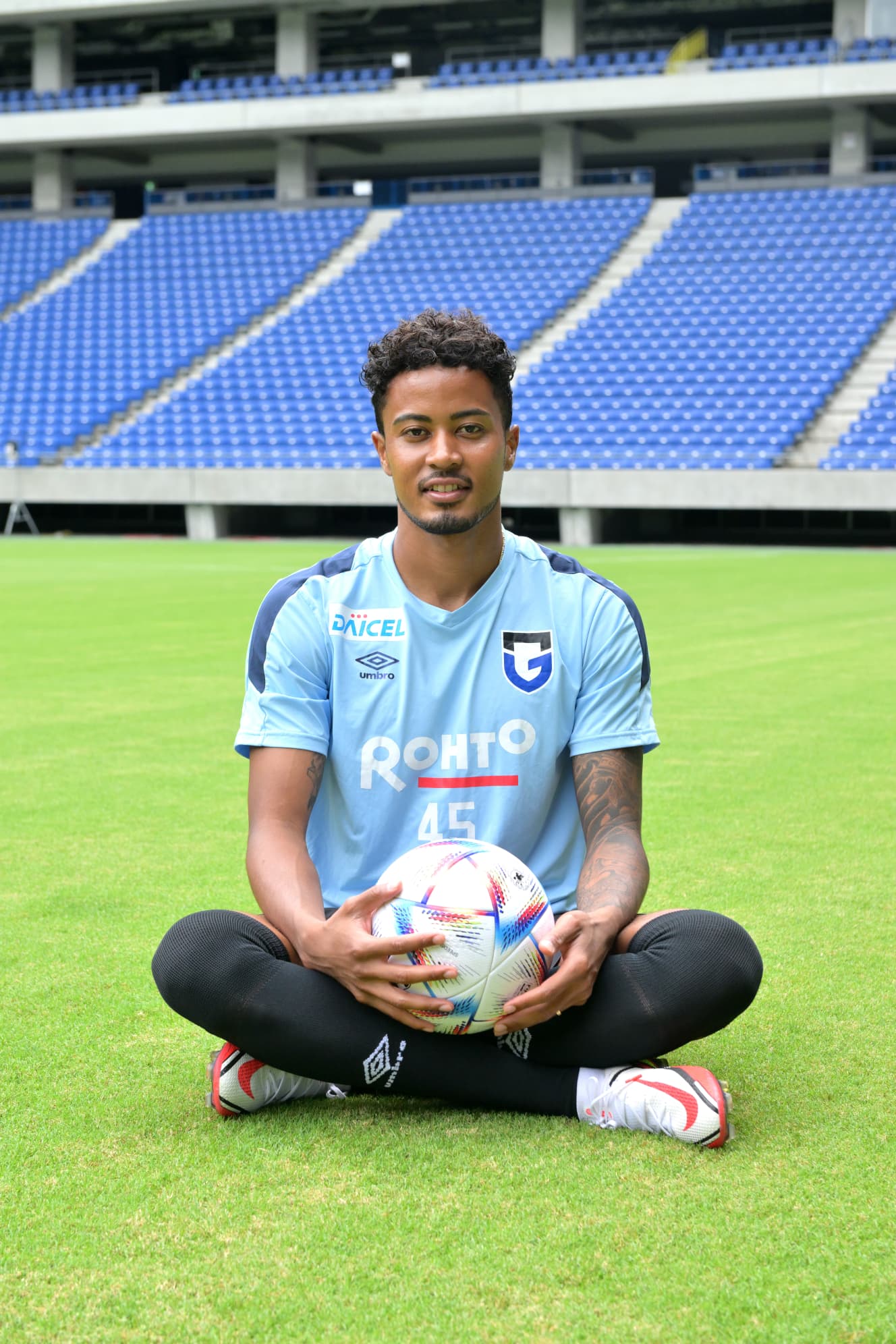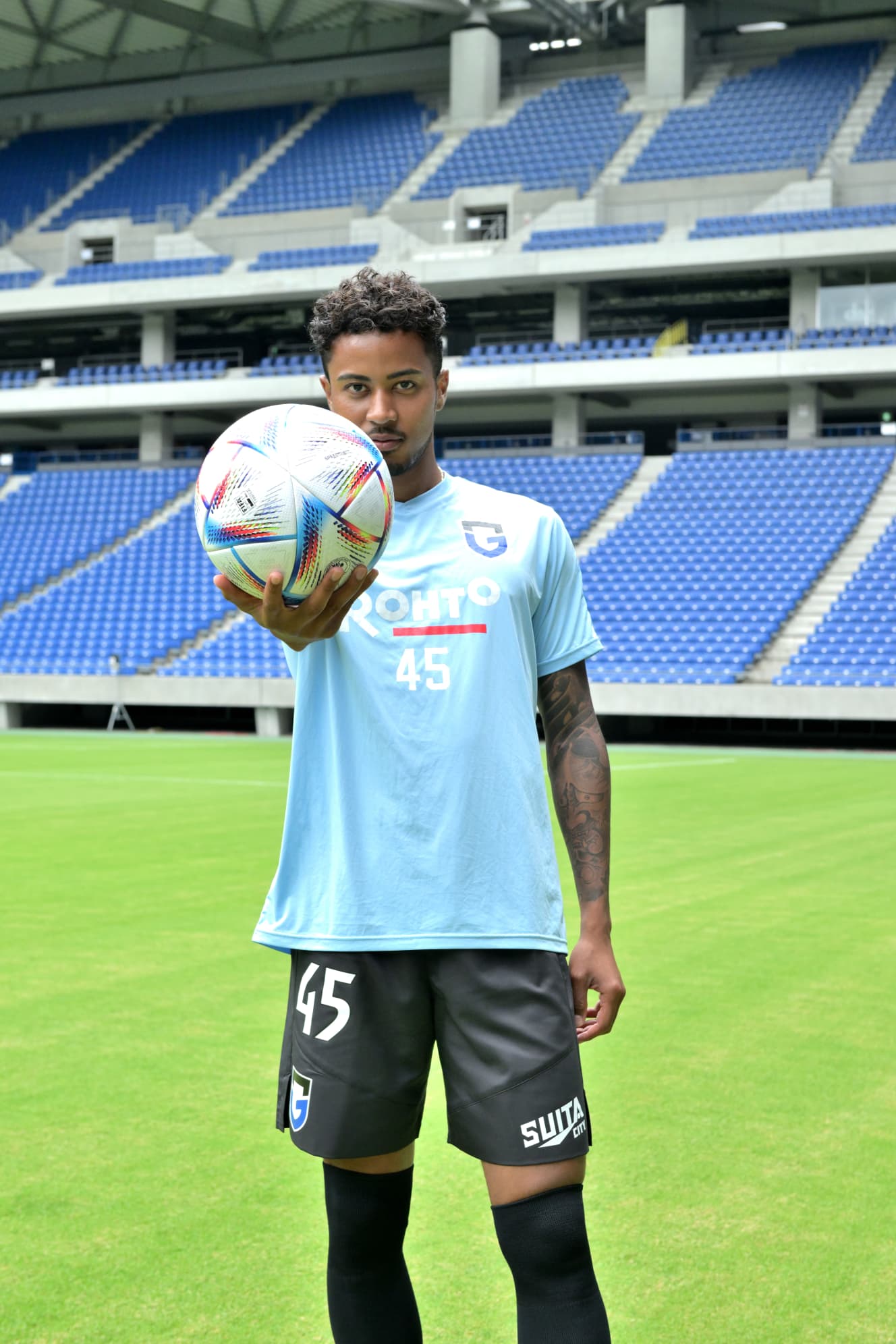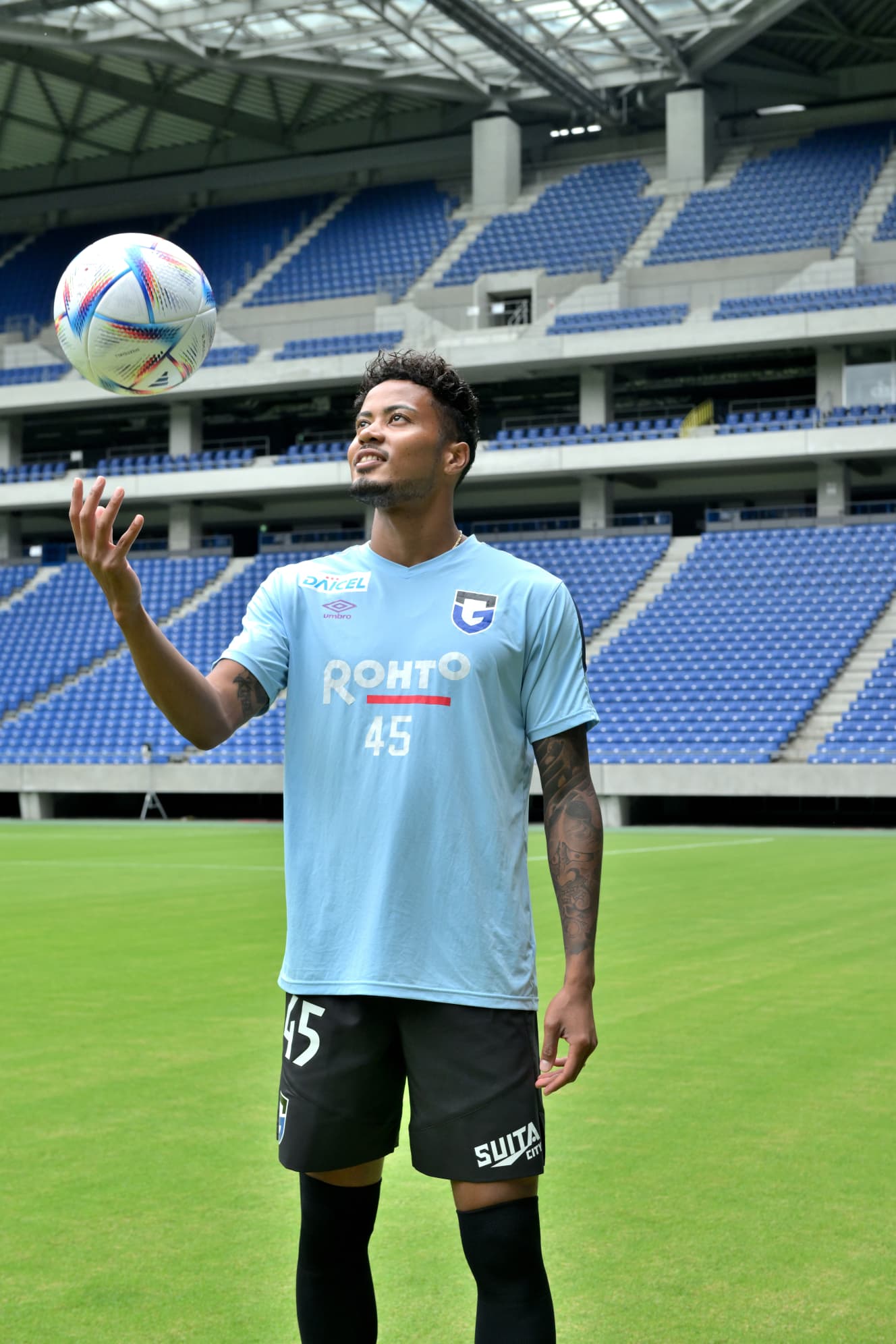Starting tonight! Musashi Suzuki talks about the behind-the-scenes of his sudden transfer and his thoughts on the World Cup
He will also start for Paris Saint-Germain vs. Gamba Osaka on July 25, and will talk about his return to the J-League and his thoughts on the Japan national team.

After two years overseas, I have grown in many aspects. I hope you will see how I have evolved in the J-League.
On June 30, a Japanese player returned to the J-League after completing his training in a foreign league: Musashi Suzuki, 28, a forward who combines his 186 cm frame with outstanding speed. He made his debut on July 16 against Cerezo Osaka after transferring to Gamba Osaka from Belgian first division club K Vershot VA.
In an exclusive interview with this magazine, Suzuki spoke of his ambitions, as he did at the beginning of this article. When asked about the background behind his decision to move to Japan, he revealed his honest thoughts as a player.
Immediately after the Belgian league season ended in mid-April, I felt both a desire to continue playing overseas and a desire to play in Japan. Gamba was the one who most enthusiastically invited me to join them. Director Katanosaka (51) and the head of the reinforcement department came up with a concrete plan based on various data. I had never won a championship before, but I gradually began to think, ‘I hope Gamba’s 10th title will be my first.
It was around late June that I received an official offer through the club. I was worried about my old club, Consadole Sapporo, until the very end. However, if I was going to return to Japan, I wanted to try a new environment that I had not been to yet. I finalized the contract within a few days, and the announcement was made on June 30.

On July 7, he joined the team training as early as possible. He says he has been full of surprises since arriving at Gamba Osaka.
Osaka is very hot. The fans are very passionate, and so is the temperature (laughs). The soccer environment is top level, and I think it is comparable to overseas. There is a stadium dedicated to soccer and a clubhouse attached to it. I thought it was indeed a strong team that regularly competes for the title.
I was also surprised by the Kansai dialect. I am from Gunma Prefecture, so I originally spoke standard Japanese and mainly English overseas, but I was most taken back by the Kansai dialect. Sometimes I lose my intonation (laughs). I have to get used to that as well.
In his second season, he was a key player in the Belgian league, playing 51 games and scoring 7 goals, and wearing the number 10 jersey. When asked about his progress, the first thing he mentioned was his physicality.
I don’t think I would have been able to experience that kind of strength against other people unless I had played overseas,” he said. The defenders I faced were basically 190cm or taller. They are also fast. I was required to be the starting point of the attack on the front line without being out-competed by them, so I think I improved the most in terms of the quality of my interpersonal game.
I also think I became mentally tougher. Since I was called up to the team as a foreigner, there were high expectations and a lot of pressure. I had to tell the coach and my teammates directly what I wanted to do, so I think I grew in that area as well.

During the interview, Suzuki mentioned the word “challenge” many times. His decision to move to Sapporo and his desire to win titles at his new club are all based on his desire to continue challenging himself as a soccer player.
I am very attached to the Lewan Cup because I reached the final when I was at Sapporo and was one step short of the title. I will aim for all the titles I can win. Personally, I am always conscious of scoring double-digit goals in the league. There are only 12 games left, but I will try to score as many goals as possible and give power to the team.
Suzuki has been called up to the national team for each age group since the U-16s, scoring a goal at the 2016 Rio Olympics, and since being selected for the full national team for the first time in 2019, he has played in nine matches. He has made nine appearances for the national team since being selected for the first time in 2019.
He has a physicality that other forwards in the national team don’t have,” he said. I’ve been playing for Japan since the U-16 age group, so the national team is a really special place for me. I have been away from the national team recently, but my desire to make a comeback is stronger than ever.
When asked who he would like to play for the current national team, he named two players.
The player I would most like to play with is Daichi Kamata (25). He has been able to score goals as well as assists, and his attacking sense has been further refined. He is growing at a tremendous rate, and it looks like he will be transferred to a new stage in the near future. I am very curious to see what kind of ball he will play when we play together.
Then there is Takumi (Minamino, 27), who has been playing with me in the Japan national team for a long time. I really respect him as a player of the same age. Takumi also moved to Japan at the same time, and I am curious to see what he can do now that we have both grown up.
Suzuki does not hide his fighting spirit, saying, “If I am selected for the Japan national team, I will definitely score a goal in every game I play. I can feel the confidence he has gained from his overseas challenge. Finally, we asked him about his thoughts on the World Cup in Qatar.
There are many other players in the current national team, such as Junya (Ito, 29), who used to play in the Belgian league, and I have fought together with them for a long time. It would be a miracle if I could stand on the stage of my dreams with such friends. It would be the biggest event in my life. Really, it would be great if I could make it. For that reason, I would first like to get results at Gamba and prove my worth.
The challenge of Japan’s leading big forward is not over.

Photo: GAMBAOSAKA